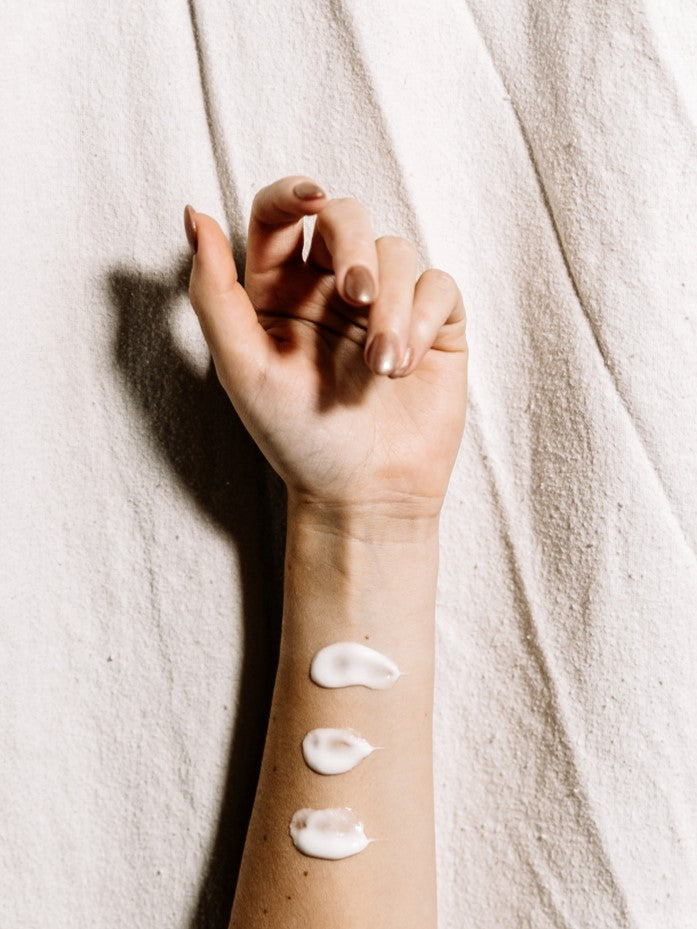Recently, CBD products have been skyrocketing in popularity. CBD isn’t used to get “high.” It is instead used for its various health benefits. But what is CBD? And what are the health benefits of CBD?
This article will cover:
- What is CBD?
- Is CBD legal?
- How should I take CBD?
- CBD’s Natural Health Properties
- 10 Health Benefits of CBD
What is CBD?
CBD, a shortened name for cannabidiol, is a chemical compound found in the cannabis Sativa plant which includes multiple hemp varieties including the marijuana plant. It is one of over 100 chemical compounds known as cannabinoids found in marijuana plants. CBD is the second most prevalent active ingredient. THC, tetrahydrocannabinol, is the main psychoactive cannabinoid found in cannabis and causes the sensation of getting “high.” Unlike THC, CBD is not psychoactive. This means CBD products do not cause a “high.” Instead, CBD is consumed for its wide range of health benefits. It is a popular non-toxic, natural option for managing pain. Since CBD has no psychoactive effects, it is slowly becoming approved for more uses by the FDA and is now being used to treat patients. Both THC and CBD are natural compounds that share the same molecular structure of 30 hydrogen atoms, 2 oxygen atoms, and 21 carbon atoms. CBD is first extracted from the plant in an oil form and then mixed with a carrier oil like hemp seed oil for consumption. There is no proven abuse of dependence potential with CBD. It is generally well-tolerated and safe with few side effects. Potential side effects include diarrhea, changes in appetite, weight, and fatigue. Research on the health benefits of CBD is fairly new and is still ongoing. CBD is already gaining momentum in the health and wellness worlds, mostly for pain relief and anxiety.
Is CBD legal?
In short, yes! Hemp-derived CBD products, with less than 0.3% THC, are legal at the federal level in the United States. However, the legal status of CBD at the state level varies from state to state. Regardless of the CBD status in your state, you can buy it online since it is federally legal for CBD to be mailed to all states. The term hemp refers to the varieties of cannabis that have less than 0.3% THC whereas Marijuana refers to varieties that have more than 0.3%. All fifty states have laws legalizing CBD with varying degrees of restriction. In December 2015, the FDA eased the regulatory requirements to allow researchers to conduct CBD trials, In 2018, the Farm Bill made hemp legal in the United States, making it virtually impossible to keep CBD illegal. This bill made CBD products federally legal to produce, purchase and use. Keep in mind that nonprescription CBD products are not FDA approved and may be inaccurately labeled. The first CBD product approved by the FDA was a prescription oil, Epidiolex, for treating epilepsy. The FDA has more recently approved the use of Marinol, Syndros, and Cesamet, synthetic pull forms of THC, for the treatment of nausea and vomiting in chemotherapy patients. In general, the FDA approves the use and distribution of CBD products with less than 0.3% THC.
How should I take CBD?
CBD comes in practically every form. It can be applied topically, consumed through smoke inhalation, and can even be eaten, although lotions and oils are the most popular. Companies are jumping on the opportunity to innovate for new exciting CBD products. There are now entire stores and online marketplaces devoted just to CBD products. Since FDA regulation is still new, make sure that where you are buying your CBD is reputable, transparent about regulations, and trustworthy. If marijuana is legal in your state, local dispensaries will be the most trustworthy and your best safe option. From oral sprays, teas and pills, you're sure to find a form of CBD that works for you. You can even buy CBD-infused sports bras and potato chips! The form in which you chose to consume CBD should depend on which health benefits you are targeting. If you’re hoping to reduce inflammation and relieve muscle and joint pain, topical CBD in the form of infused lotion, oil or cream would be the best option. For longer-lasting benefits, choose a CBD patch or oral spray designed to be placed under the tongue. These options allow CBD to directly enter the bloodstream and heal the entire body.
CBD’s Natural Health Properties
CBD is increasingly being used to treat and even prevent a wide array of health issues. Since marijuana was first utilized for medicinal purposes in 2900 BC, many civilizations have integrated CBD to treat an array of medical conditions. CBD’s anti-inflammatory properties provide effective pain relief. Research shows that CBD has a calming effect on the nervous system which can help reduce anxiety and aid sleep disorders. It has also been proven to improve mood since it affects the serotonin system. CBD has also been found to be a powerful antioxidant with even more antioxidant qualities than Vitamin C and Vitamin E.
The majority of the health benefits of CBD are due to the following health properties:
- Anti-Inflammatory
- Antioxidant
- Calming to the Nervous System
- Increases Serotonin
- Anti-Nausea
10 Health Benefits of CBD
1. Offset Anxiety and Depression
CBD has a strong calming ability, which can be extremely beneficial for mental health issues including Anxiety, Depression, and PTSD. This calming ability is the most popular effect and reason for its use. Anxiety and depression are usually treated with pharmaceutical drugs which can cause several side effects including drowsiness, agitation, insomnia, sexual dysfunction, and headaches. These drugs can also be addictive and may lead to substance abuse. CBD offers a natural and effective alternative. This benefit is prominent because CBD acts on the brain's receptors for serotonin, the neurotransmitter that regulates mood and social behavior. In one Brazilian study, 57 men reviewed either oral CBD or a placebo for 90 minutes because they underwent a simulated public speaking test. The researchers found that the 300-mg dose of CBD was the most effective at significantly reducing anxiety during the test. In a different study in 2018 conducted by the Journal of Alternative and Complementary Medicine, 11 people with post-traumatic stress disorder (PTSD) received CBD along with routine psychiatric care for 8 weeks in an outpatient clinic. Ten out of eleven of them experienced a decrease in their PTSD symptoms. In several other studies, antidepressant effects have been shown.
2. Pain Relief and Management
Another common use of CBD is to treat chronic pain. In fact, pain relief is its most prominent benefit. CBD has been used to treat pain for as far back as 2800 BC! CBD helps reduce pain by impacting endocannabinoid receptor activity, reducing inflammation, and interacting with neurotransmitters and proteins in the central nervous system and body. It inhibits the absorption of a natural cannabinoid molecule called anandamide, which regulates pain as well as correlates with feelings of happiness and wellbeing. When anandamide signaling is enhanced by CBD, the levels in the bloodstream increase which helps reduce pain throughout the body. When cannabinoids engage with the Endocannabinoid system present in most organs throughout the body, inflammation is reduced systematically. Pain relief from CBD is especially effective in combination with THC. For pain relief, CBD should be applied topically, This treats pain in a more localized and direct way. In 2005, Canada approved the use of Sativex, an oral spray with equal proportions of THC and CBD for the treatment of multiple sclerosis-related central neuropathic pain. In 2007, Canada approved the medicines use again for cancer pain that proved unresponsive to other medications. Sativex is now approved in multiple countries to treat pain. Individuals that suffer from conditions like neuropathy, multiple sclerosis, and arthritis can benefit from CBD’s pain-relieving qualities.
3. Treat Select Epilepsy Syndromes
Of all the proven health benefits, there is the strongest scientific evidence for CBD’s effectiveness in treating specific childhood epilepsy syndromes. It is shown to reduce the number of epileptic seizures and in some cases, stop them altogether. In 2018, the Food and Drug Administration (FDA) approved the use of CBD under the name Epidiolex to treat seizures resulting from Lennox-Gastaut syndrome and Dravet syndrome, two rare forms of epilepsy, in patients at least two years old. Studies have proven that Epidiolex, when taken along with other prescribed medications, decreases the frequency of seizures.
4. Alleviate Cancer Related Symptoms
CBD is starting to be used to aid cancer patients, mostly for pain reduction and nausea. CBD may even have anti-tumor effects! It can significantly reduce symptoms related to cancer and side effects related to treatment including chemotherapy-induced nausea, vomiting, and pain. Some animal and lab students have shown CBD may even have anti-cancer/anti-tumor properties. One study found that concentrated CBD induced the cell death of human breast cancer cells. Another study showed that CBD inhibited the spread of aggressive breast cancer cells in mice. Animal students have shown that CBD can significantly prevent the spread of breast, prostate, brain colon, and lung cancer. Human studies need to be conducted before these anti-tumor properties can be fully trusted.
5. Treat Substance Abuse
Another benefit is that CBD can be used to treat people dependent on other substances like opioids. CBD cigarettes can be extremely helpful for people quitting tobacco cigarettes. CBD has been shown to help with cravings, withdrawal, and resting heart rate among addicts. It also helps with anxiety, insomnia, and pain related to drug withdrawal. Drug addiction affects brain circuits that cause the development of dependency. CBD actively works to correct and modify these circuits in the brain related to drug dependence. CBD is a natural and safe alternative and tool for recovering addicts.
6. Protect Against Neurological Diseases
Due to CBD’s antioxidant and anti-inflammatory properties, it is beneficial for neurological diseases like Parkinson’s, Alzheimer’s, Arthritis, and Multiple Sclerosis. It has also been shown to alleviate ALS (Amyotrophic lateral sclerosis) symptoms. ALS is a disease that causes nerve cells in the brain and spinal cord to deteriorate. It causes a loss of muscle control that worsens over time and there is no known cure. CBS is shown to help with joint pain and stiffness involved with these diseases. CBD’s ability to relieve pain, and act on endocannabinoid systems and other brain signaling systems, offers significant benefits to those suffering from neurological diseases.
7. Benefit Heart Health
CBD is also linked to lower blood pressure and improved heart health. High blood pressure is linked to strokes, heart attacks, and metabolic syndrome. The stress and anxiety-reducing properties of CBD are likely responsible for its ability to lower blood pressure. Animal students have shown that it can reduce and prevent inflammation, cell death, and heart damage. CBD is beneficial for heart health due to its powerful antioxidant and stress-reducing properties. If you regularly take CBD, you will have a lower blood pressure which also means you have a slimmer chance of having a heart attack, stroke, or heart disease.
8. Reduce Acne and Skin Conditions
The anti-inflammatory properties of CBD are also beneficial for treating skin conditions. Acne is a super common skin condition that results from a combination of genetics, bacteria, inflammation, and overproduction of sebum, an oily secretion made by skin glands. CBD has strong anti-inflammatory properties and the ability to reduce sebum production. It is a safe and effective way to treat acne. The anti-inflammatory properties can also help treat other skin conditions like psoriasis and eczema. On top of this, CBD’s antioxidant properties are also helpful for skin conditions because it helps fasten the skin’s healing time.
9. Help with Sleep Disorders
CBD can help with sleeping difficulties due to its ability to reduce anxieties and worries that might be causing you to stay awake. CBD has been shown to help with insomnia, REM sleep disorder, and excessive daytime sleepiness disorder. Research shows that low doses of CBD can be stimulating but high doses can be sedating.
10. Prevent Diabetes
CBD is shown to prevent a condition called insulitis that destroys pancreatic beta cells. Insulitis is a major cause of Type 1 Diabetes therefore preventing insulitis can help prevent diabetes. CBD can reduce the effects of high glucose levels on other cells in the body. CBD can also lower the side effects of diabetes like memory deficits and neuroinflammation. It can also help the body naturally regulate insulin-related hormone levels.
Sources:
https://www.forbes.com/health/body/cbd-oil-benefits/
https://www.healthline.com/nutrition/cbd-oil-benefits
https://www.health.harvard.edu/blog/cannabidiol-cbd-what-we-know-and-what-we-dont-2018082414476
https://www.healthcanal.com/is-cbd-legal-state
https://www.sleepfoundation.org/how-sleep-works/cbd-and-sleep
https://www.webmd.com/diet/health-benefits-cbd#1










